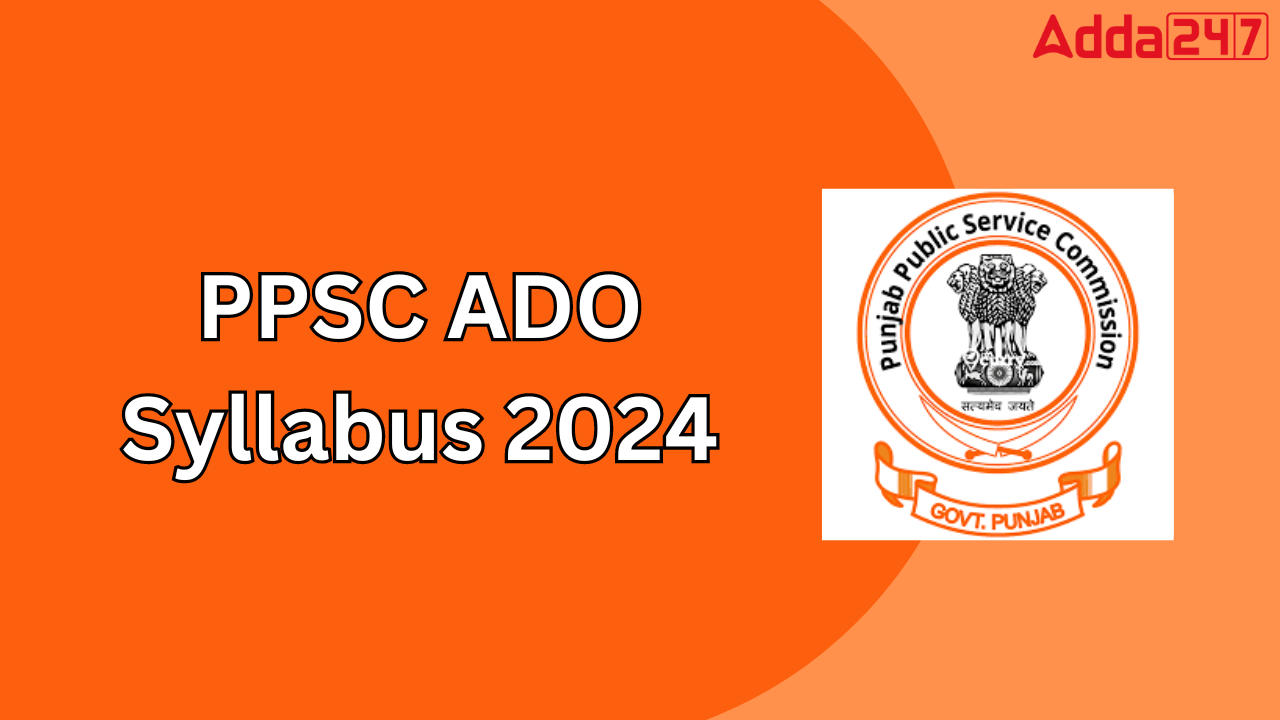Table of Contents
PPSC Agriculture Development Officer (ADO) Syllabus 2024
On June 30, 2024, the Punjab Public Service Commission (PPSC) will hold the examination for the position of Agriculture Development Officer. Applicants who plan to take the exam should be aware of the format and subject matter required for the position. The updated exam pattern focuses on comprehensive familiarity with all its components. Candidates can review the updated syllabus and exam patterns through this page.
PPSC ADO Exam Pattern
There will only be 120 questions in the English-language PPSC Agriculture Development Officer Question Paper.
- English will be the only language allowed for the question paper.
- There are four (4) marks for each question, and the candidate will get four (4) marks for each correct answer.
- A negative mark (one mark for each question) will be awarded for an incorrect answer in the written exam. This implies that each wrong answer will lower your final score by one point.
- The candidate must decide which answer is the best or most accurate for each question before answering it.
- Unanswered or incomplete questions won’t be graded.
- If a question is eliminated, all applicants will earn four (04) marks, regardless of whether they answered the question or not.
- The entire exam will last two hours.
For more details, candidates can check the following table.
| PPSC ADO Exam Pattern | |||
| Topic | No. Of Questions | Marks | Types of Questions |
| Questions from the subject (Part A of Syllabus) | 90 | 360 | MCQ(MULTIPLE CHOICE QUESTIONS) |
| Questions from General Knowledge & Current Affairs (Part B of Syllabus) | 10 | 40 | |
| Questions from General Mental Ability, Logical Reasoning & Quantitative Aptitude (Part C of Syllabus) | 10 | 40 | |
| Punjabi (Part D of Syllabus) | 10 | 40 | |
| Total | 120 | 480 | |
PPSC Agriculture Development Officer (ADO) Syllabus- Topic Wise
1. PART-A (SUBJECT)
- Basic knowledge of Agronomy, Soil Science, Plant Breeding, Entomology, Plant Pathology, and Extension Education – Understanding fundamental concepts related to crop science, soil studies, plant genetics, insect science, plant diseases, and agricultural extension education.
- Growth and development of crops; weather and climate; crop classification – Studying the life cycle of crops, factors influencing their growth, and how weather conditions and climate impact agricultural practices. Also, understanding the categorization of different crops.
- Farm tools and implements, Calculations on seed rate, plant population, fertilizer, herbicide, irrigation requirement, land measurements, etc -Knowledge of various agricultural tools, machinery, and equipment. Ability to perform calculations related to agriculture, such as seed rate, plant population, fertilizer amounts, irrigation needs, and land measurements.
- Technologies for improved cultural practices for different field crops starting from seeding to grain maturation, Field preparation, sowing methods, and time of sowing – Familiarity with modern technologies and best practices for cultivating different field crops, starting from the seeding process up to the maturation of grains.
- Efficient management practices for tillage, fertilization, irrigation and drainage, weed control, nutrient recycling, mulches, and crop residue management; crop rotation, multiple cropping, mixed cropping, and intercropping – Understanding effective strategies for managing various aspects of agriculture, including soil tillage, fertilization, irrigation, weed control, nutrient recycling, mulching, crop residue, and different cropping techniques.
- Crop diversification, precision agriculture, integrated farming systems, organic farming, and sustainable agriculture – Knowledge of different approaches to agriculture, such as diversification, precision farming, integrated farming systems, organic farming, and sustainable agricultural practices.
- Seed production of different field crops. Integrated disease and pest management in field crops – Understanding the processes and techniques involved in the production of seeds for various field crops.
2. PART-B ( General Knowledge & Current Affairs)
General Knowledge and Current affairs of National and International importance including:
- Economic issues
- Polity issues.
- Environment issues.
- Science and Technology.
- Are there any other current issues?
- History of India with special reference to Indian freedom struggle movement.
- History of Punjab- 14th century onwards.
3. PART-C (General Mental Ability, Logical Reasoning & Quantitative Aptitude)
- Logical reasoning, analytical and mental ability, etc.
- Basic numerical skills, numbers, magnitudes, percentages, numerical relation appreciation, etc.
- Data analysis, Graphic presentation charts, tables, spreadsheets, etc.
4. PART D (Punjabi)
- Grammar
- Synonyms and Antonyms
- Comprehension


PPSC ADO Last Week Preparation Tips
Before starting the exam, candidates should have a well-organized study schedule and some secret tips to make the most of their preparation time. The PPSC ADO scores can be enhanced by applicants adhering to the study routines and recommendations listed below:
- Don’t start any new topic now as the exam is near.
- Revise all the topics you studied.
- Revise all the questions and mock papers you gave.
- Solve as many as questions you can.
- Keep yourself healthy and energetic.
- Make sure to get an admit card and other things required for the exam.




 RPSC Agriculture Officer Admit Card 2025...
RPSC Agriculture Officer Admit Card 2025...
 ASRB NET Syllabus 2025, Check Detailed S...
ASRB NET Syllabus 2025, Check Detailed S...
 BSSC Field Assistant Recruitment 2025 No...
BSSC Field Assistant Recruitment 2025 No...


 Adda247 Job portal has complete information about all Sarkari Jobs and Naukri Alerts, its latest recruitment notifications, from all state and national level jobs and their updates.
Adda247 Job portal has complete information about all Sarkari Jobs and Naukri Alerts, its latest recruitment notifications, from all state and national level jobs and their updates.